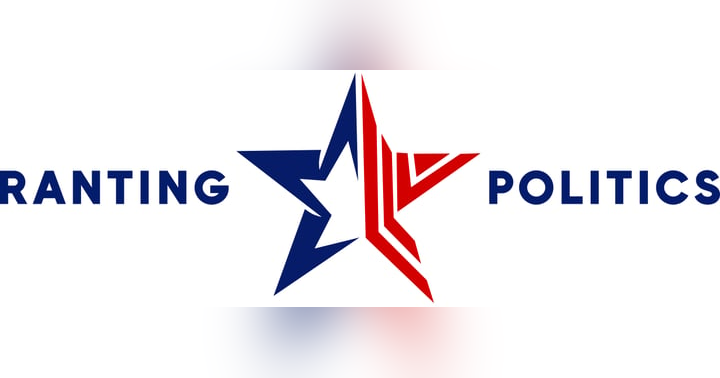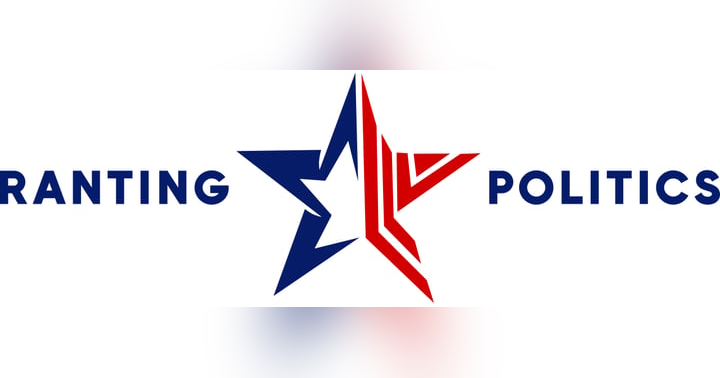AOC and Ana Paulina Luna's Surprising Bipartisan Alliance

AOC and Ana Paulina Luna's Surprising Bipartisan Alliance
RP Deep Think: This blog post delves into the unexpected collaboration between Alexandria Ocasio-Cortez and Ana Paulina Luna, two congresswomen from opposing political parties, who have joined forces to advocate for a cap on credit card interest rates. Their surprising alliance highlights the potential for bipartisan cooperation on issues impacting everyday Americans, while simultaneously revealing the complexities of political maneuvering and the potential ramifications for both consumers and the financial industry. This unexpected partnership is just one of several significant events discussed in our latest podcast episode, which you can listen to here.
The AOC-Ana Paulina Luna Bipartisan Alliance: An Unexpected Team-Up
The political landscape is often characterized by stark divisions, making the partnership between Representative Alexandria Ocasio-Cortez (D-NY) and Representative Ana Paulina Luna (R-FL) all the more noteworthy. These two congresswomen, representing vastly different ideological wings of the political spectrum, have surprisingly found common ground on the issue of soaring credit card interest rates. Their joint effort to introduce legislation capping these rates at 10% represents a rare instance of bipartisan collaboration in an increasingly polarized Congress. This unexpected alliance underscores the potential for finding common ground, even on issues that might seem inherently partisan.
Understanding the Proposed Credit Card Interest Rate Cap
The proposed legislation aims to address the burden of high credit card interest rates on American consumers. Proponents argue that the cap would provide much-needed relief for millions of individuals struggling with debt, particularly those facing financial hardship. The current system, they contend, allows credit card companies to charge exorbitant interest rates, trapping individuals in a cycle of debt that is difficult to escape. The 10% cap is intended to create a more equitable and sustainable system, protecting consumers from predatory lending practices.
However, opponents argue that such a cap could have unintended consequences. Some economists worry it might limit access to credit for certain individuals, potentially hindering economic growth. Concerns have also been raised about the potential impact on the profitability of credit card companies, which could lead to increased fees or other changes that offset the benefits of the cap. The debate highlights the intricate balancing act between consumer protection and the stability of the financial industry.
Political Implications and Potential Impact
The AOC-Luna alliance carries significant political implications. It challenges the prevailing narrative of complete partisan gridlock in Washington, suggesting that common ground can be found even on seemingly intractable issues. The success or failure of this legislation could significantly impact the political landscape, potentially shaping future debates on economic policy and consumer protection. A successful passage could embolden other bipartisan efforts, demonstrating the effectiveness of cross-aisle cooperation. On the other hand, failure could reinforce the perception of partisan division and hinder future attempts at compromise.
The potential impact on consumers is significant. If successful, the legislation could provide substantial relief to millions of Americans burdened by high-interest debt. This could have ripple effects throughout the economy, potentially boosting consumer spending and stimulating economic growth. Conversely, if the legislation fails, consumers may continue to grapple with the burden of high interest rates, potentially exacerbating existing financial inequalities.
Reactions from the Banking Industry and Consumers
The banking industry has expressed strong opposition to the proposed legislation. Industry representatives argue that the cap would reduce their profitability and limit their ability to offer credit to consumers. They contend that market forces should determine interest rates, and government intervention could lead to unintended consequences, such as reduced credit availability and increased fees for consumers. This opposition highlights the potential clash between consumer interests and the concerns of the financial sector.
Consumer reaction has been more mixed. While many consumers support the proposed cap, hoping for relief from high-interest rates, others are concerned about the potential impact on credit availability and the possibility of increased fees. The debate reflects the complexities of balancing consumer protection with the realities of the financial market. Public opinion will likely play a crucial role in the legislative process.
A Deeper Dive into the Political Dynamics
The AOC-Luna alliance raises intriguing questions about the dynamics of contemporary American politics. It suggests that issues impacting everyday Americans can transcend traditional partisan divides. While their motivations may differ, both congresswomen recognize the need to address the problem of high credit card interest rates. This collaboration opens a window into the potential for building bridges across the ideological spectrum and the possibility of finding common ground on critical policy issues.
The success of their effort will depend on several factors, including the ability to garner support from both sides of the aisle. This will require navigating the complexities of political negotiation and compromise. The political climate, marked by increased polarization, presents significant challenges, but the potential rewards of bipartisan cooperation could be substantial.
Looking Ahead: The Future of Bipartisan Cooperation
The AOC-Luna alliance serves as a case study in the potential for bipartisan cooperation. While such collaborations remain rare in the current political climate, their success or failure will likely influence future efforts to bridge partisan divides. The outcome of this specific legislation will be a significant indicator of the possibilities and limitations of bipartisan cooperation in addressing pressing issues facing the nation.
The future of bipartisan cooperation hinges on the willingness of political leaders to prioritize the needs of their constituents over partisan agendas. This requires a shift in political culture, emphasizing dialogue and compromise over ideological warfare. The success of the AOC-Luna alliance, however, offers a glimmer of hope, suggesting that bipartisan solutions are attainable, even in a highly polarized political environment.
Conclusion
The unexpected alliance between Alexandria Ocasio-Cortez and Ana Paulina Luna to cap credit card interest rates represents a compelling example of bipartisan cooperation on a critical issue affecting millions of Americans. This rare moment of political collaboration, along with the other significant events covered in our latest podcast episode – a tragic plane crash in Pennsylvania, a Secret Service shooting near the White House, China's growing influence in the Caribbean, a trans rights protest in Manhattan, and questions regarding President Biden's use of an autopen – paints a picture of a dynamic and often unpredictable political landscape. Listen to the full episode here to gain a deeper understanding of these multifaceted events and their implications.









